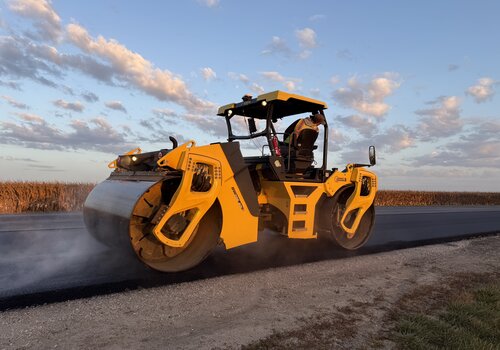As the construction industry evolves, new technologies, sustainability demands and innovative construction methods are reshaping the landscape. The jobs of the future in construction will require a combination of traditional skills and modern, tech-driven competencies. To remain competitive, today’s workforce must be proactive in adapting to these changes.
THE FUTURE OF CONSTRUCTION JOBS
- Automation and Robotics Operators
Automation is streamlining many construction processes, from bricklaying to concrete pouring. In the future, jobs will emerge that focus on operating, maintaining and repairing advanced robotics and autonomous systems. Rather than replacing workers, robots will become tools that enhance productivity, speed and safety. Workers will need to understand how to collaborate with these machines to optimize efficiency on the job site. - Drone Pilots and Surveyors
Drones have already revolutionized surveying and inspection processes, providing a faster and safer way to gather real-time data. As drone usage becomes more prevalent, jobs focused on drone operation, aerial surveying and site monitoring will expand. Construction workers can prepare by obtaining drone pilot certifications and training in GIS (Geographic Information System) mapping technologies. - Sustainability Specialists
With increasing emphasis on green building practices and sustainable construction, roles such as sustainability consultants, energy efficiency managers and green building specialists will see higher demand. Workers will need expertise in energy-saving technologies, environmental regulations and eco-friendly materials. Certifications like LEED (Leadership in Energy and Environmental Design) can help construction professionals gain an edge in this growing field. - 3D Printing Technicians
3D printing is becoming more widespread in construction, offering faster and more cost-effective solutions for building structures and components. Workers familiar with 3D printing technology will be able to assist in operating these machines, troubleshooting issues and integrating 3D-printed elements into traditional construction workflows. - Building Information Modeling (BIM) Specialists
Jobs focused on BIM will involve creating digital models of construction projects that can be used for planning, scheduling and collaboration across multiple teams. Workers with strong computer skills, particularly in BIM software like Revit or AutoCAD, will be highly sought after. - Cybersecurity and Data Protection Officers
As construction sites become more digitized and connected, the need for cybersecurity will increase. Future jobs will focus on protecting sensitive data, ensuring that automated systems are secure and safeguarding communication networks from cyberattacks. Workers can prepare by gaining knowledge in IT security, network systems and data protection protocols.
To thrive in these emerging roles, construction professionals must adopt a mindset of continuous learning and adaptability.
PREPARING FOR THE FUTURE
To thrive in these emerging roles, construction professionals must adopt a mindset of continuous learning and adaptability. Here are several ways workers can prepare:
Embrace Technology Training
The most straightforward way to future-proof your career is to gain familiarity with the technologies transforming the industry. Attend workshops, enroll in online courses or seek certification in fields such as robotics, drones, BIM or energy-efficient systems.
Focus on Soft Skills
While technical skills are critical, future construction jobs will also require soft skills like communication, adaptability and problem-solving. Workers who can effectively collaborate, manage complex workflows and think critically will be better positioned to take advantage of new opportunities.
Seek Certifications
Many emerging fields in construction offer certifications that demonstrate expertise in specific areas. Whether it’s LEED accreditation, a drone pilot’s license or a certification in BIM, earning these credentials can help workers stand out to future employers.
Leverage Apprenticeships and Cross-Training
Gaining hands-on experience is one of the best ways to prepare for the jobs of the future. Apprenticeships in fields like robotics, data analytics or sustainable building can provide valuable real-world skills. Additionally, cross-training in different specialties can expand a worker’s versatility and employability.
Stay Informed on Industry Trends
Keeping up with the latest industry trends will help workers anticipate which skills will be in demand. Reading industry reports, attending conferences and networking with peers can provide valuable insights into the future direction of the construction sector.
The future of construction will be shaped by technology, sustainability and innovation. Workers who proactively develop new skills and embrace change will be well-positioned to take on the jobs of tomorrow. By focusing on both technical and soft skills, gaining relevant certifications and staying informed, construction professionals can ensure that they remain vital to the industry as it evolves.
Photo credit: DOLGACHOV/BIGSTOCKPHOTO.COM












